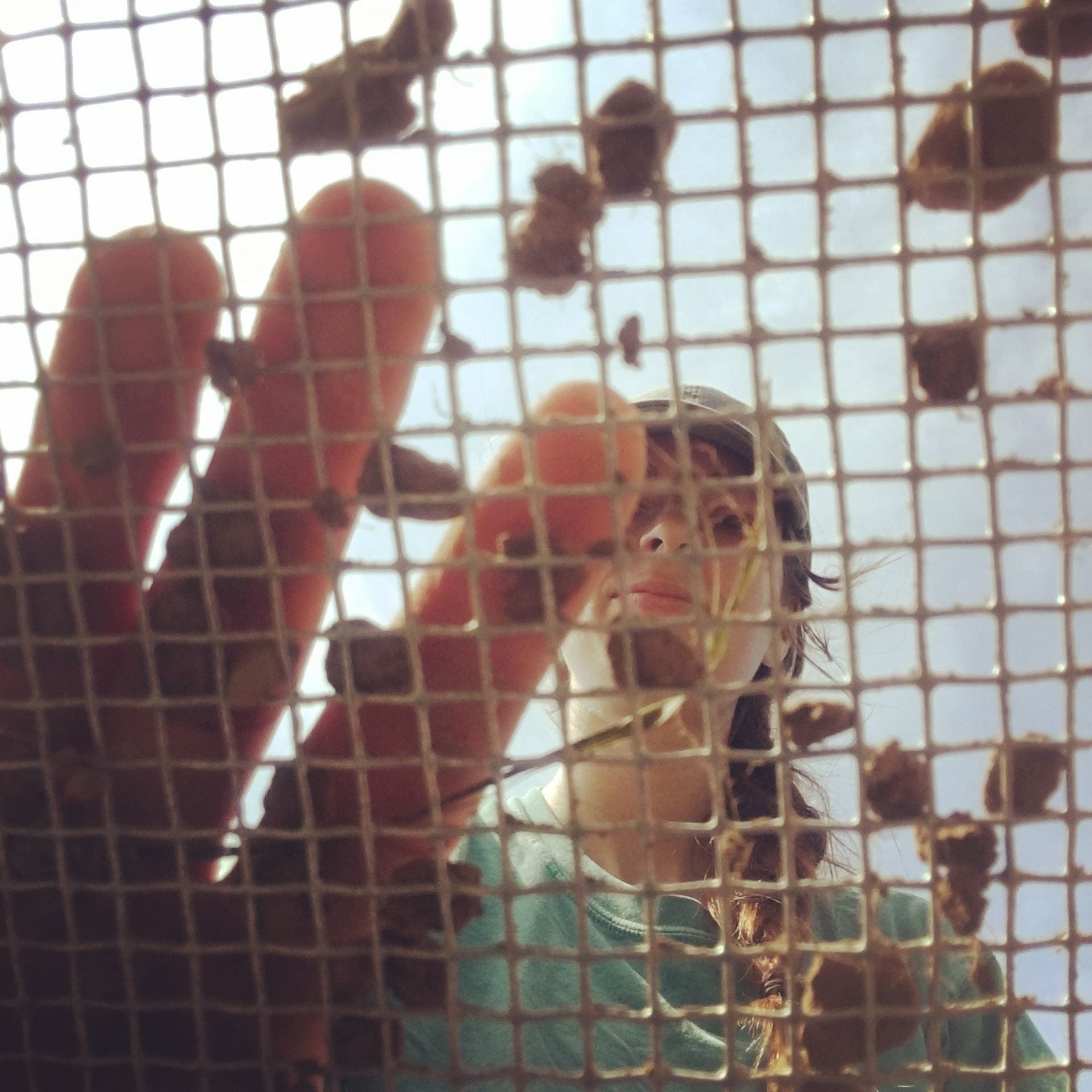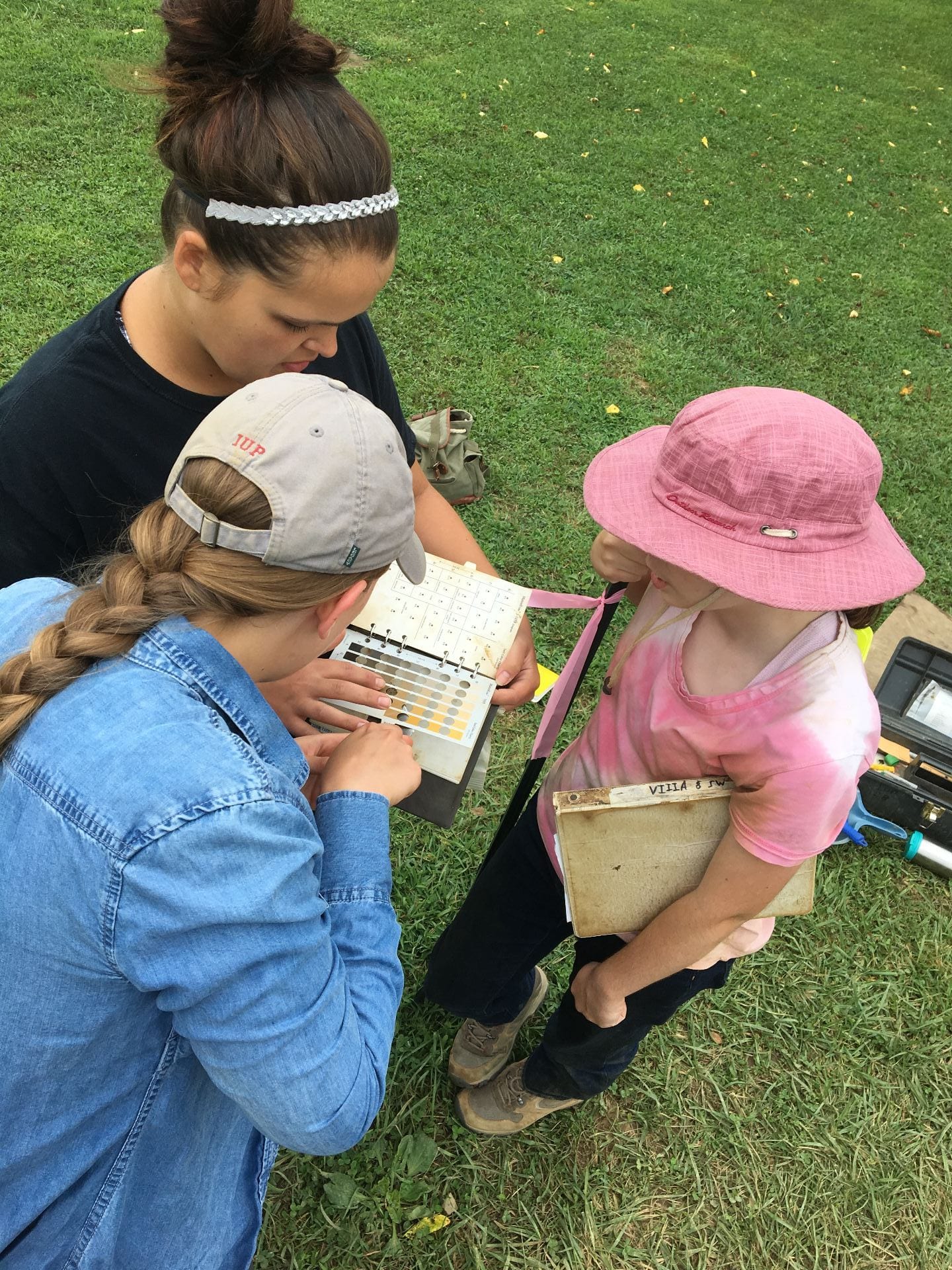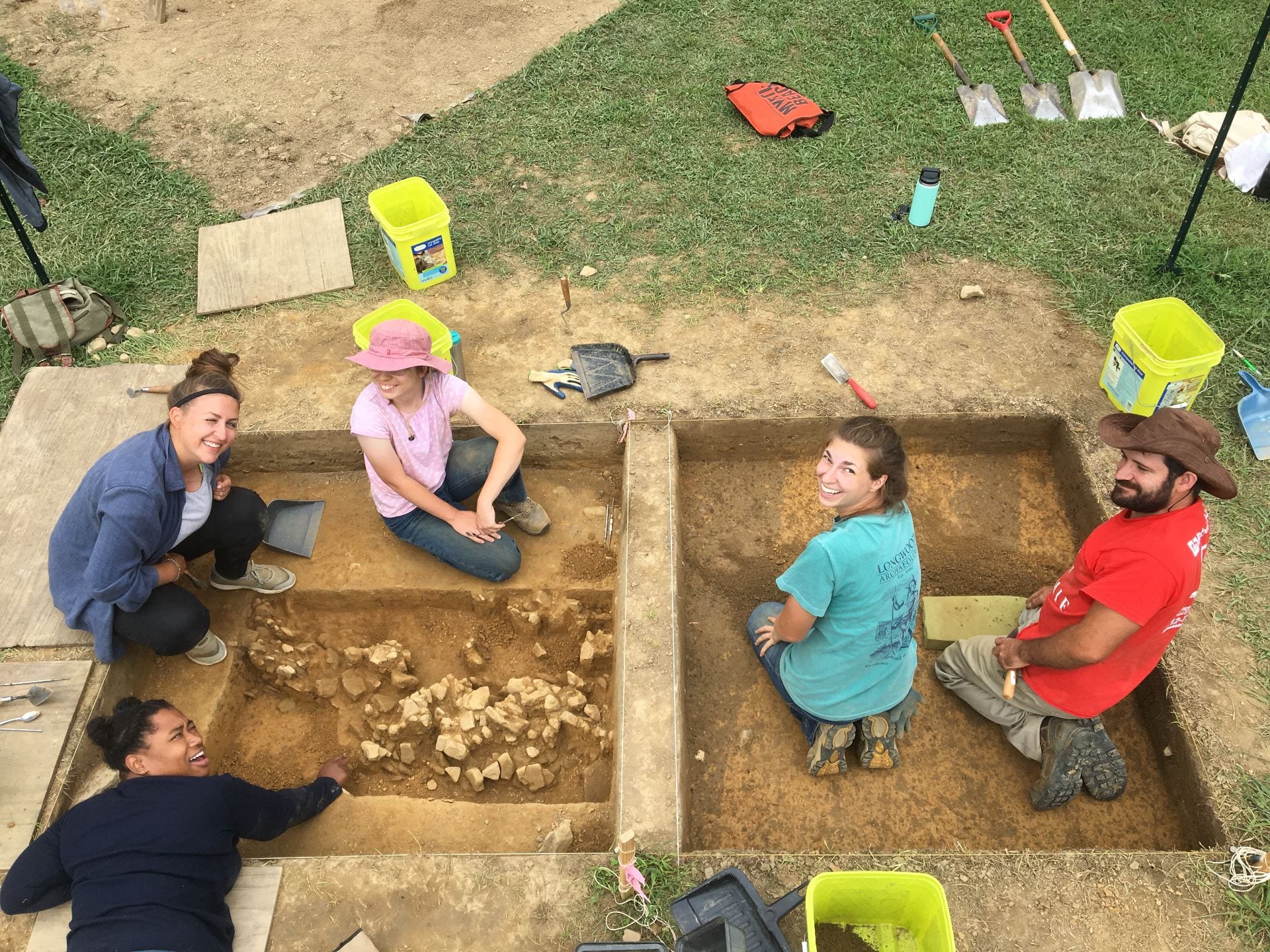It’s that time of the semester again. It’s time to start looking at future courses. For some of the budding archaeologists, that means applying to a field school. This leads me to the main point, this summer the IUP Anthropology Department will be hosting a summer field school at the site of Newport, Pennsylvania from July 8-August 16. It is open to anyone who is interested in learning about how archaeology is done.
What happened at Newport? Great question, convenient voice from nowhere. Newport was the first Euro-American town settled in Indiana County and dates to around 1790. At least, it was founded by then. Being located along the Conemaugh River with a natural stone wharf, Newport was a river town where produce could be loaded onto boats and shipped around, eventually reaching Pittsburgh. Newport may not have been a large town but by 1816 there were around 30 families living in town. The town was also comprised of a nail factory, post office, store, and hotel. As time went on, the post office would shut down (1818) and the town was slowly abandoned throughout the 19th century.
What would you be doing there? That’s another great question my friend. This answer varies a little bit depending on the specific course you’d take. There is, of course, the base Archaeological Field School (ANTH 320/520) which acts as your introduction to archaeological survey, field excavation, and laboratory processing. This means you will get experience in necessary skills like test unit triangulation and excavation, screening, profile and plan mapping, shovel probe excavation (shovel test pits), and compass orientation in the field and proper handling, cleaning, and storage of artifacts in the lab. There is also the Advanced Archaeological Field School (ANTH 740) which, as the name implies, is the advanced instruction in survey and excavation methods with an emphasis on the application of research designs to field settings and the logistics of supervising projects. This course is intended for those who have already had a field school and want to learn more about running an archaeological project. Both courses will be part of geophysical and test pit surveys around the store, hotel, and nail factory. These surveys will be followed by excavation units to explore the various features and geophysical anomalies found through surveying.
Now, there’s something I always thought to be amazing, and that is what you gather from the field school contributes to the archaeological record. Your field notes become documentation of the experience. You, in your own way, will add to the record and our understanding of this site. Maybe it’s just being part of the data collection or an artifact drawing in your notes (or in my case, counting the trains that pass by on a daily basis) but you will have helped gather information about the site that was not known before. Frankly, there’s little we know about Newport beyond that synopsis a few paragraphs above. The initial surveys will add to our knowledge of the site boundaries and the site integrity, this is what you’ll be apart of right from the start. Maybe that’s less exciting when you’ve had some extensive experience, but the idea that what I did in field school matters is exhilarating to me.
If you’ve made it this far, thank you. I hope that you’ll indulge my rambling for just a bit longer. Field school isn’t just something you need to be an archaeologist, it is something you need to really experience archaeology. The fieldwork isn’t for everyone, but this is your chance to find out if you enjoy it. Let’s be real here, not every day is pleasant. Sometimes it’s just too hot or a rainstorm appears out of nowhere. You could get bit up by the local bug population or sunburned. If you’re not experienced in manual labor, going out under the sun day after day can be tiring. While this might sound unpleasant, this is how archaeology is in the field. I don’t want to scare anyone away but that is fieldwork, but fieldwork is also working together with your peers and instructors, gaining skills as you do so.
Now, I can never make guarantees, but if my experience is worth anything, I will tell you that going to an IUP field school is an amazing experience. This experience is enhanced by having supportive professors and peers which is what you find within IUP’s Anthropology Department. Now, I’m totally biased having started my undergrad career, taking the 2016 field school, and continuing my education into a master’s program here at IUP but that was my experience. I will always stand by my saying that we have an incredibly supportive department from peers to professors. Take advantage of this and you will enhance your field school experience.
Hopefully you found this post helpful, and I hope you’ll be joining us for a field school at some point.



